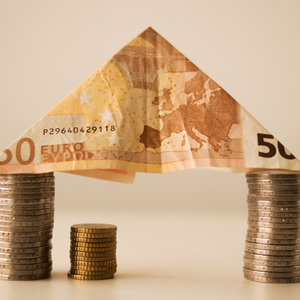
Understanding Capital Gains Tax for Real Estate Transactions
Understanding the capital gains tax on real estate transactions in North Carolina is crucial for anyone selling a house. When you sell a property, the profit from the sale may be subject to capital gains tax, which is calculated based on the difference between the property’s selling price and its original purchase price, adjusted for improvements and expenses.
In North Carolina, as in other states, federal capital gains tax rates apply, with potential state taxes adding to your liability. Factors such as how long you’ve owned the home and whether it was your primary residence can significantly influence your tax obligations.
The IRS offers an exclusion for primary residences, allowing homeowners to exclude up to $250,000 of gain if single or $500,000 if married filing jointly, provided certain conditions are met. Understanding these exemptions and how they interact with state-specific regulations can help minimize your tax burden when selling real estate in North Carolina.
If you’re concerned about navigating capital gains tax while selling, working with a trusted homebuyer can make the process easier. Swift Cash House Buyer in North Carolina offers fair cash deals, handles the paperwork, and helps you sell quickly without the stress of repairs or long listing times.
Calculating Capital Gains on Primary vs. Secondary Residences
In North Carolina, the capital gains tax when selling a house differs depending on whether the property is a primary or secondary residence. For primary residence homeowners, there is the capital gains exclusion, which allows single homeowners up to a $250,000 exclusion and married couples up to a $500,000 exclusion from the taxable gains if they have lived in the house for 2 out of the 5 years before selling the home.
Having the primary residence capital gains exclusion significantly changes the tax burden, sometimes even erasing it completely. Secondary residences do not have the same tax benefits, which means selling a vacation home or investment property will always have a capital gains tax burden.
Determining the tax owed is calculated by the purchase price, home improvements, and the selling cost. It is vitally important to understand these concepts to ensure all the relevant documents are in place to determine the capital gains tax to which they may be liable while also trying to maximize any deductions that may be available.
Exemptions and Deductions Available for Home Sellers
When selling a house in North Carolina, understanding the available exemptions and deductions related to capital gains tax can significantly impact the overall financial outcome. Homeowners may qualify for the primary residence exclusion, allowing them to exclude up to $250,000 of capital gains if single, or $500,000 if married filing jointly, provided they meet ownership and use tests.

To qualify, the property must have been the seller’s principal residence for at least two out of the five years preceding the sale. Additionally, certain home improvements made during ownership can be added to the property’s basis, potentially reducing taxable gain.
Sellers should also consider any potential state-specific deductions that might apply and consult with a tax professional to navigate the complexities of capital gains taxation effectively. Understanding these nuances is crucial for maximizing savings when selling a home in North Carolina.
If you’re unsure how exemptions and deductions might apply to your situation, don’t hesitate to contact Swift Cash House Buyer. Our team can walk you through your options, answer your questions, and help you make informed decisions while exploring the best way to sell your house.
Step-by-step Guide to Reporting Capital Gains on Your Tax Return
In North Carolina, selling a house also requires knowledge of how to report capital gains. This means knowing how to pay the tax on the capital gains properly. This means beginning to determine the adjusted basis, defined as the purchase price of the property plus all improvements made to it over time.
In your next step, determine the capital gain by taking the adjusted basis, including the associated selling costs, and subtracting that from the selling price. In the event that you have owned and lived in the house as the primary residence for more than two years within the five years preceding the sale, you may be exempt from tax, at least in part, up to a tax exclusion of $250,000 for single taxpayers and $500,000 for married taxpayers filing together.
You can lose it if you pay no tax at all. This exclusion can wipe out gainable capital taxes or lower the gain on capital taxes. This is also the difference between owing taxes and reporting all transactions on Schedule D of Form 1040. Whenever the taxpayer is honest in reporting taxes, he or she always files the tax return.
Use Form 8949 to document any adjustments or unique situations pertaining to your gains or losses, if relevant. Keep in mind that in order to substantiate your computations, having a complete record of all the financial dealings tied to the property in question will aid in the seamless tax reporting to the IRS applicable to your residency in North Carolina.
The Impact of Local Tax Laws on the Sale of Property
Like any other location, selling a house in North Carolina requires an understanding of bookkeeping practices, especially state-specific tax laws pertaining to capital gains tax netting and liabilities. The real estate market in North Carolina particularly imposes extra considerations on sellers due to its specific tax laws.
There is no state capital gains tax in North Carolina. However, any profit made from the sale of real estate property is taxed under the state’s individual income tax as any other income. This means, for taxation, the profit made from the sale of your home in North Carolina will be taxed at the income tax level, and this dramatically changes your net profit from the closed sale of your home, especially in the case of selling expensive houses.
In addition, even if the seller is single or a married couple filing jointly claiming $250,000 or $500,000, respectively, the capital gains exclusion applies at the federal level as long as the seller complies with North Carolina state rules and regulations, including the state residency and home usage. Sellers in North Carolina need to consider that the tax implications at the state level can be exclusionary or inclusionary, and, therefore, it is crucial to determine if the seller satisfies all requirements to maximize benefits from complex real estate transactions in North Carolina.
The Impact of Home Improvements on Capital Gains Tax
When selling a house in North Carolina, understanding the impact of home improvements on capital gains tax is crucial. Capital gains tax is calculated based on the difference between the selling price of the property and its original purchase price, adjusted for certain factors like home improvements.

Enhancements such as kitchen remodels, bathroom upgrades, or adding a new deck can increase the home’s basis, effectively reducing taxable capital gains. It’s essential to maintain detailed records and receipts of all qualifying improvements made during your ownership period.
These records serve as proof when calculating your adjusted basis, potentially lowering your tax liability. However, not all expenditures qualify; only those that add value to the home or adapt it for new uses are considered eligible improvements under IRS rules.
Understanding these distinctions ensures you maximize potential exclusions and minimize your capital gains tax burden when selling your property in North Carolina.
Cash home buyers in Greensboro, NC, and surrounding cities can provide a fast solution if you’re ready to sell and want a simple alternative to listing on the open market. They purchase homes in any condition, which means you don’t have to worry about additional upgrades or costly renovations before closing.
Investment Properties: Special Considerations for Landlords
In North Carolina, landlords selling an investment property take into account capital gains tax. With real estate, primary residences are usually taxed differently from investment properties.
In North Carolina, selling such properties almost always results in a capital gain. A capital gain is determined by deducting a property’s adjusted basis from the net sales price. If the property has been held for more than a year, the federal long-term capital gain tax rate applies. However, landlords must be aware of additional state taxes that will affect the tax liability.
Moreover, rather than paying the capital gains taxes due to selling a property, a landlord could take advantage of the 1031 exchange, which allows him to reinvest the proceeds from the sale into another property. However, IRS rules are very strict, and it is not easy to meet the requirements to be eligible for the tax deferral.
Landlords need to ensure that such expenses are well-documented, as they will make up for the improvements made to the property. This could reduce the possible taxes payable on the capital gains. A tax advisor who specializes in real estate in North Carolina would be very helpful in ensuring that the landlord follows the law and also maximizes the investment property’s selling price.
The Role of Depreciation in Calculating Gain From the Sale of Rental Property
In the case of a rental property in North Carolina, taking depreciation into consideration while working out capital gains tax seems important. Depreciation of a property is the deduction that the owners can take over a period of time for the deterioration in condition or the obsolescence of the rental premises.
This tax advantage decreases the income tax expenses on the property while it is owned; however, the income tax due on the sale is more on account of the capital gains income tax, which greatly increases the valuation of the property sold. The Internal Revenue Service (IRS) requires you to recapture depreciation tax deductions for every rental property sold after the sale for all the years claimed; these are his honor and taxes on the unrecaptured section 1250 gain.
These are recaptured depreciation that increases the overall liability of capital gain. To find out the capital gain, you first need, along with other expenses claimed, to include the depreciation expense to find the adjusted cost basis.
Now, the basis, which is termed the sale proceeds, and the adjusted basis, which is lower due to depreciation, are termed the realized gain and are also subjected to federal and state capital gain taxes. Moreover, in the case of North Carolina rental property, capital gains are higher. Hence, over the period, it is important for the owner to report a depreciation claim on the property.
Do I Have to Pay Capital Gains Tax When I Sell My House in North Carolina?
When selling a house in North Carolina, understanding the implications of capital gains tax is crucial. In North Carolina, whether you need to pay capital gains tax upon selling your home depends on several factors.

Primarily, it hinges on the profit made from the sale and how long you’ve owned and lived in the property. The IRS provides an exclusion for primary residences, allowing single filers to exclude up to $250,000 of profit and married couples filing jointly to exclude up to $500,000 from capital gains taxes.
To qualify for this exclusion, homeowners must have owned and used the home as their primary residence for at least two of the five years preceding the sale. However, if your profit exceeds these limits or if the property was not your primary residence, you may be liable for capital gains tax.
It’s important to consider both federal and state tax obligations when selling property in North Carolina. Consulting with a tax professional can help navigate potential liabilities and ensure compliance with all relevant regulations concerning real estate transactions in North Carolina.
For homeowners looking for a faster, stress-free option, working with cash home buyers in North Carolina and nearby cities can be a smart solution. These buyers often purchase properties as-is, allowing you to avoid costly repairs, skip long listing times, and sell your house quickly for cash while still addressing your capital gains responsibilities effectively.
How to Avoid Paying Capital Gains in North Carolina?
Understanding how to avoid paying capital gains tax on selling a house in North Carolina will require considering a few strategies. One strategy would be to use the primary residence exclusion, where sellers can exclude capital gains of up to $250,000 for single filers or $500,000 for married couples filing jointly if they lived in the house for the last two out of the five years preceding the sale.
Another strategy would be a 1031 exchange, where the seller would be able to defer paying capital gains taxes if the sale proceeds are reinvested into purchasing another similar property within a certain period of time. Also, it is important to understand that the home improvement costs that the seller incurs will increase the basis of the property, which will, in turn, lower the taxable gain on the sale.
Hiring a competent tax specialist with experience in North Carolina can help you customize strategies to successfully minimize capital gains tax. These strategies will, in turn, help a homeowner minimize or eliminate capital gains tax incurred on selling a house in North Carolina.
Do you need to sell your home but are worried about the impact of capital gains tax after selling a house? With Swift Cash House Buyer, you can skip the stress of costly repairs, agent commissions, and drawn-out listings. We provide fair cash offers, take care of the details, and help you close quickly, making the process simple and hassle-free. Have questions or ready to get started? Call us today at (610) 590-9845 for a no-obligation cash offer.
Helpful North Carolina Blog Articles

| TAX-PLANNING | TAX PLANNING | STOCK | FEES | CHARITABLE DEDUCTION | TAX DEDUCTION |
| INCOME TAXES | PROPERTY TAXES | FILING STATUS | REALTORS | REAL ESTATE AGENT | |
| INSURANCE | INSURANCE AGENT | FINANCIAL ADVICE | FINANCIAL ADVISORS | INVESTMENT ADVISOR | WEALTH |
| ESTATE-TAX | ESTATE TAX | ESTATE TAXES | SHARES | RETIREMENT | REAL ESTATE INVESTORS |
| QSBS | QUALIFIED SMALL BUSINESS STOCK | INVESTORS | FEDERAL TAXES | NIIT | MONEY |
| INDIVIDUAL RETIREMENT ACCOUNTS | TRADITIONAL IRAS | FUTURE | FLAT TAX RATE | FLAT TAX | DATA |
| CERTIFIED PUBLIC ACCOUNTANTS | CAPITAL ASSET | NET INVESTMENT INCOME TAX | GAINS TAX IN | TAX IN NORTH CAROLINA | GAINS TAX IN NORTH |
| CAPITAL GAINS TAX IN |
